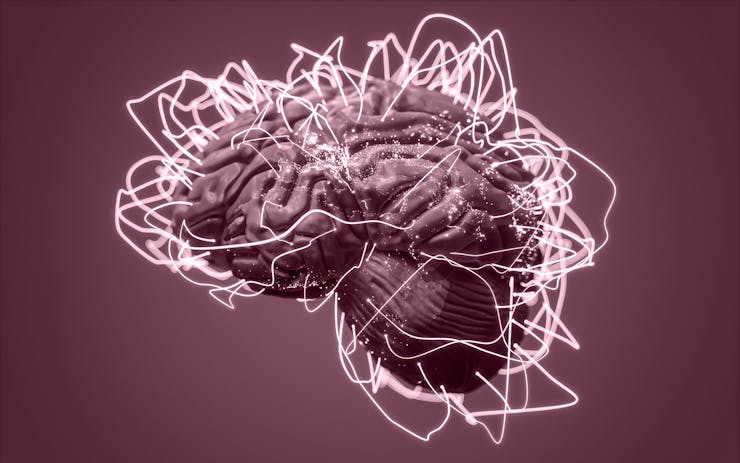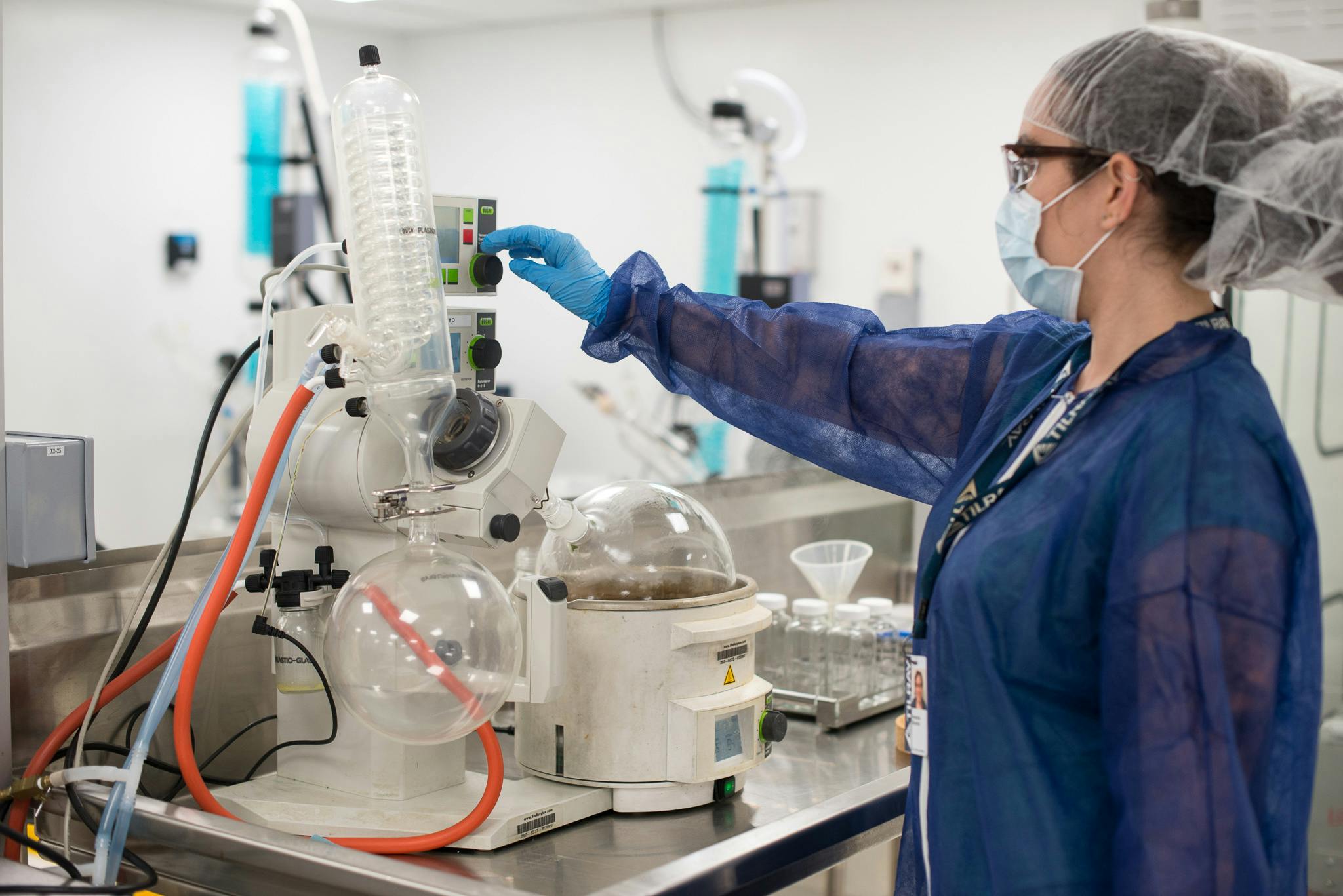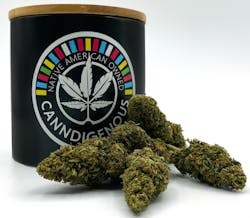Take some CBD, they said. You’ll feel less high, they said.
This common piece of advice fed to THC-shy consumers can effectively bring someone back down to earth. It works—sometimes. But new research shows there’s likely more nuance in the solution than we initially thought.
Scientists found that a high dose of CBD dampened the effects of a THC high, but participants reported a stronger high when combined with low doses of CBD.
CBD can either dampen an out-of-control high or boost it. Described in a 2019 study in the European Archives of Psychiatry and Clinical Neuroscience, this paradoxical effect of CBD is dependent upon an often overlooked factor: dosage.
Scientists found that a high dose of CBD (400mg) curbed the intoxicating effects of a THC (8mg) high, but participants reported a stronger high when combined with low doses (4mg) of CBD.
CBD’s up & down button
Because CBD is non-intoxicating, many consumers pay little attention to the dose. Sure, there’s a big difference between a 10mg and a 500mg THC-infused edible, but why worry about the potency of a CBD product that’s non-impairing, even in very high doses?
With evidence that CBD can affect us at different doses, suddenly, these numbers matter. And it’s not only important for the over-enthusiastic adult who ate too many infused cookies—it matters for medical patients, too.
If you’re looking to tame a wild THC ride, try larger doses of CBD-packed oils and concentrates. A small dose might not cut it—and could even launch you even higher.
In an interview with Leafly’s in-house neuroscientist, Nick Jikomes, we learned that there’s still much research to be done in understanding the “right” dose of CBD for various medical conditions and symptoms.
Shop highly rated dispensaries near you
Showing you dispensaries nearAdding to that, prominent cannabis clinician Dr. Dustin Sulak explains that the ideal CBD dose may be different from person to person.
“As with any other medication, it is best to start on a low dose and increase gradually over weeks,” he says in Leafly’s guide to pediatric epilepsy. “When the optimal dose is exceeded, there may be a point at which you see the benefits start to diminish (increased side effects or increased seizures).”
Above, you’ll find the illustrated results of the 2019 study comparing CBD’s effect on a THC high when administered at high and low doses. Participants vaporized cannabis, unbeknownst to them which dose and CBD:THC ratio they were receiving.
Those who consumed THC and a little CBD reported feeling the most high, followed by the THC-only reports. Those who vaporized THC with a hefty dose of CBD seemed to get just as high initially, but the euphoric effects wavered within one hour.
So, if you’re looking to tame a wild THC ride, try larger doses of CBD-packed oils and concentrates. A small dose might not cut it—and could even launch you even higher.
How useful is this info?
While the results of this study shed light on the importance of THC:CBD ratio, there are still questions to consider when taking this information and applying it to your own smoke session.
The first consideration is, do the doses administered to study participants accurately reflect what you’re smoking, vaping, or ingesting?
It’ll take some trial and error to find the perfect THC:CBD ratio for your perfect experience, even knowing the results of this study.
“The THC+CBD (low) dose was equivalent to proportions found in some strains of cannabis plant matter while the high dose of CBD was selected to approximate therapeutic oral doses from the literature,” the study’s authors wrote.
What isn’t yet clear is whether or not maintaining proportionate ratios will have the same effect if the dose itself is different. In other words, would you need an astronomical 800mg dose of CBD to similarly temper 16mg of THC?
This study controls for variables like tolerance, but there are still questions left to answer. It’ll take some trial and error to find the perfect THC:CBD ratio for your perfect experience, even knowing the results of this study.
Luckily, experimentation is part of the fun.
Get a little higher
You can try and replicate the results above by dialing in a perfect 8mg THC to 4mg CBD, but let’s be real—a dose this precise can be hard to come by.
Instead, let’s experiment with some practical scenarios, knowing that a little CBD may enhance that THC high:
- Find a high-THC strain and add a little high-CBD flower to your bowl. See how different strains harmonize together best.
- Try mixing 2-parts high-THC tincture with 1-part CBD tincture. Tap into your inner mixologist and get creative with different flavors, too.
- Roll CBD oils into your dab collection. While it might be a bit tricky to conjure a precise dose or ratio, you might still find adding CBD to your alchemy to be rewarding.
For a balanced high
In order to achieve CBD’s grounding effect, you’ll have to experiment with larger doses of CBD—doses achievable through cannabis concentrates like distillate and RSO.
For even-keel effects out the gate, fill your life with balanced THC/CBD products—edibles with 5mg of both THC and CBD (or maybe 10mg of each, whatever floats your personalized boat).
Remember, this study was researching how lower and higher doses of CBD affect the same baseline THC intake. So what’s the easiest solution for a mild, comfortable high out the gate? Less THC to begin with.
An intoxicating tingle
On its own, CBD is a non-intoxicating compound, so why are people in the study reporting feelings of intoxication compared to the placebo group?
“It is likely that these dissociating effects were rapidly induced by vaporization of this compound, delivering CBD with high bioavailability to the bloodstream and hence central nervous system, although this is likely also confounded by dose,” the researchers wrote. “The high-dose CBD condition induced significant coughing; as such, participants were aware that they were being administered an active condition (as opposed to the ease of inhalation of ethanol-flavoured air in the placebo condition). The changes in intoxication might, therefore, be surmised to be a placebo effect.”
So if you’re concerned about any degree of intoxication, consider utilizing ingestible CBD products instead of inhaling CBD strains and concentrates. Conversely, if you’re seeking the slightest tingle of intoxication, give vaporization of CBD-rich oils a try.






